Transcription
Madam Speaker, I am pleased to speak in the House today about Canada’s role in the global coalition to counter the Islamic State of Iraq and the Levant, or ISIL. I am particularly proud to be able to speak about how Canada’s new comprehensive integrated and sustainable strategy will become an important contribution to the coalition efforts.
ISIL continues to present a serious threat to regional and global security, including a threat to Canadian citizens at home and abroad. The terrorist activities that ISIL continues to undertake in territories it controls in Iraq and Syria have resulted in thousands of deaths and the displacement of millions of people. ISIL continues to torture and behead people, has licensed rape and enslavement of women, and has callously destroyed places of worship and irreplaceable cultural and archeological sites.
To face these challenges, the international community has to come together, under a global coalition, with a specific aim to degrade and ultimately defeat ISIL. The global coalition, established in September 2014, consists of 66 members. These include countries, as well as organizations, such as the United Nations, the European Union, and the Arab League.
There is a broad consensus in the international community that the struggle to defeat ISIL and prevent it from expanding requires a comprehensive, long-term, and multi-pronged approach. Accordingly, the coalition has focused its efforts along five lines of engagement.
While the military efforts will continue to play a vital role in setting the conditions necessary to deal with ISIL’s immediate threat, the coalition also has non-military lines of effort, which are necessary to bring stability to liberated areas and prevent a group from replacing ISIL once it has been defeated.
These include, first, undertaking stabilization activities in areas liberated from ISIL to support the safe and sustainable return of displaced people to their communities; second, stemming the flow of foreign terrorist fighters to and from the region, including through strengthening the exchange of information and enhancing international co-operation; third, stopping the flow of funds to and from ISIL, preventing it from using or benefiting from the international financial system and diminishing the sources of revenue under its control; and fourth, exposing and countering ISIL’s narrative and false message, and supporting positive and credible alternative narratives.
Working groups to coordinate and enhance coalition efforts along these specific lines of effort were also created. Every country involved in this fight contributes to the best of its capacity and capability in a complementary way to those of its allies and partners in the coalition.
I am proud to note that Canada is one of the few countries to actively contribute to all the lines of effort of the coalition, both military and non-military. Canada is also a member of the so-called small group of the coalition. This group comprises the 25 coalition members that provide military support to Iraqi forces fighting ISIL on the ground. The small group of the coalition plays an important role in establishing the strategic directions for the coalition.
Canada is an active partner in the small group. The Minister of Foreign Affairs participated in the most recent small group meeting held earlier this month in Rome, where he discussed with coalition partners our collective progress in combatting ISIL, and plans to strengthen these efforts, building upon the progress achieved so far. Canada also hosted a small group of political directors in Quebec in July 2015.
There has been significant progress. ISIL has been pushed out of approximately 30% of the territory it used to occupy in Iraq and Syria. In Iraq, the cities of Tikrit, Sinjar, and Ramadi have been liberated. Refugees and displaced people are starting to return to their homes to rebuild their lives and their communities.
Members of the global coalition are continuing their plans to ramp up operations against ISIL. The Minister of National Defence attended a meeting of the small group ministers of defence in Brussels, last week, where a forward-looking strategic direction for the military component of the coalition was laid out. Coalition members also reiterated their commitment to ensure coherence and coordination across the military and non-military lines of effort.
It is through our active contribution in an ongoing consultation with members of the coalition that Canada has developed its new strategy. That strategy is comprehensive, integrated, and sustained. It gives us the best chance to defeat ISIL and to build the foundations for peace and stability in the region in the longer term.
The strategy is comprehensive because it comprises Canadian investments in all aspects of a durable solution: military, diplomatic, stabilization, humanitarian and developmental assistance. These investments will ensure that we remain an active contributor to all lines of coalition effort. The strategy is integrated in how its components are linked and how they complement the efforts of others in the coalition.
Finally, our strategy is sustained because we are making a multi-year commitment and because the choices we have made are the most likely to lead to sustainable outcomes. We Canadians are respected for our ability to train ground troops, to support security forces, to combine effective humanitarian and developmental support, and to provide sound diplomacy.
Going forward, Canada will help address a crucial need for the continued training of Iraqi forces. We have the expertise and our strategy builds on our strengths, so Canada’s impact will be most effective in the longer term. By contributing this way, we will ensure that Iraqis are able to defend themselves and take the lead on the battlefield. Our approach will strengthen the ability of local forces to fight back against ISIL.
The Canadian Armed Forces are well placed to help prepare Iraqis in this. We recognize the very important sacrifices that our men and women in uniform have made in this fight. Our Canadian Armed Forces continue to do a tremendous job and have the gratitude of all Canadians for the amazing work they have done. As the parent of two members of the Canadian Forces, I am incredibly proud.
Canada will also continue to work with its partners to strengthen its efforts to stem the flow of fighters to Iraq and Syria. We will continue to work together to cut off ISIL’s funding and destroy ISIL’s financial infrastructure, and will support capacity-building efforts in the region to help governments protect their financial systems from terrorist financing. We will work to support and sustain strategic communications against violent extremism in ISIL-controlled territories and continue to co-operate with coalition partners and allies to promote a positive narrative that exposes ISIL’s twisted message and ideology for what it is.
As local forces continue to liberate areas from ISIL control in Iraq, our support will help displaced populations return to their homes. This builds on the work that we have already done and enhances the efforts of our coalition partners. This government is committed to international efforts to degrade and defeat ISIL and we will fulfill that commitment using our civilian and military capabilities.
We are proud of the contributions of the Canadian Armed Forces in this fight. They will continue to play a vital role in Canada’s role in the global coalition, but our new strategy also draws upon Canada’s widely recognized expertise in security, humanitarian, stabilization, and developmental assistance. Our refocused engagement has been developed in close consultation with our coalition allies and partners and reflects the needs and requests expressed to Canada.
At the same time, it leverages Canadian capabilities and specific value-added expertise. Our contributions will build on the success of the coalition. They will further complement and enhance the efforts of our coalition partners. Going forward, Canada will continue to work in close co-operation with local and international allies and partners to implement our new strategy.
Only through a comprehensive and integrated approach that looks beyond the immediate term and focuses on the long-term future of the region can we ensure that we defeat ISIL and prevent its rise, or that of another threat like it, tomorrow.

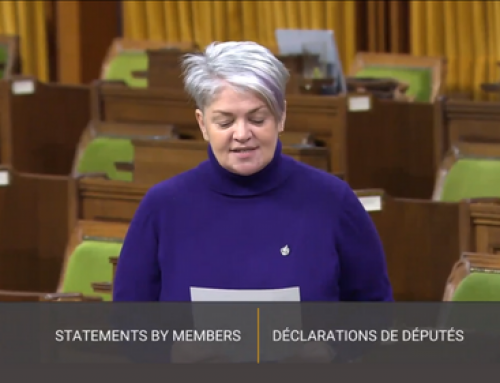
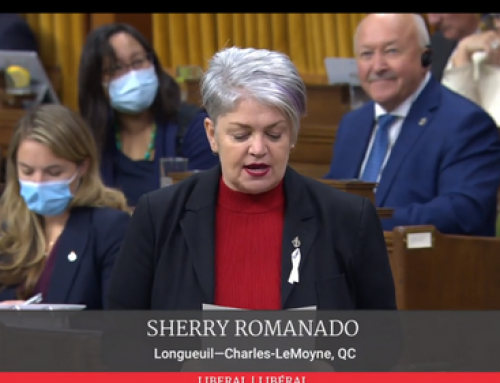
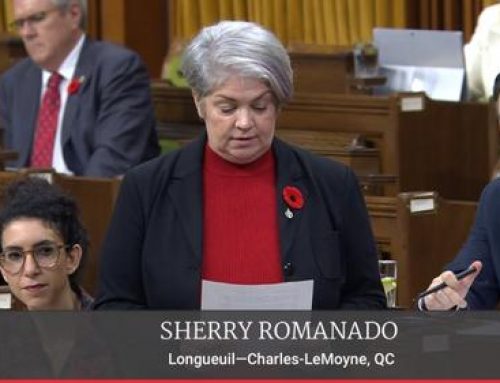
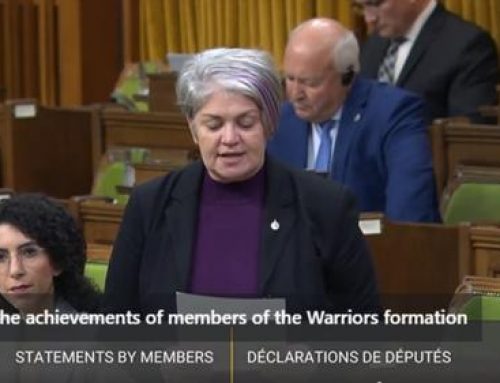
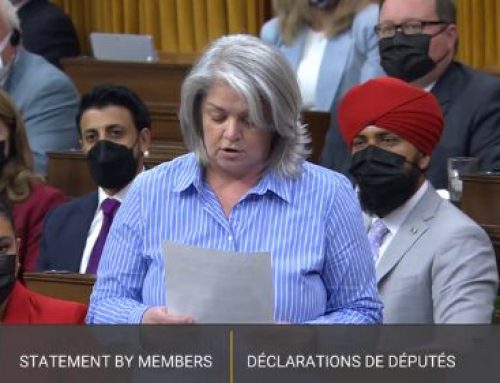
Leave A Comment